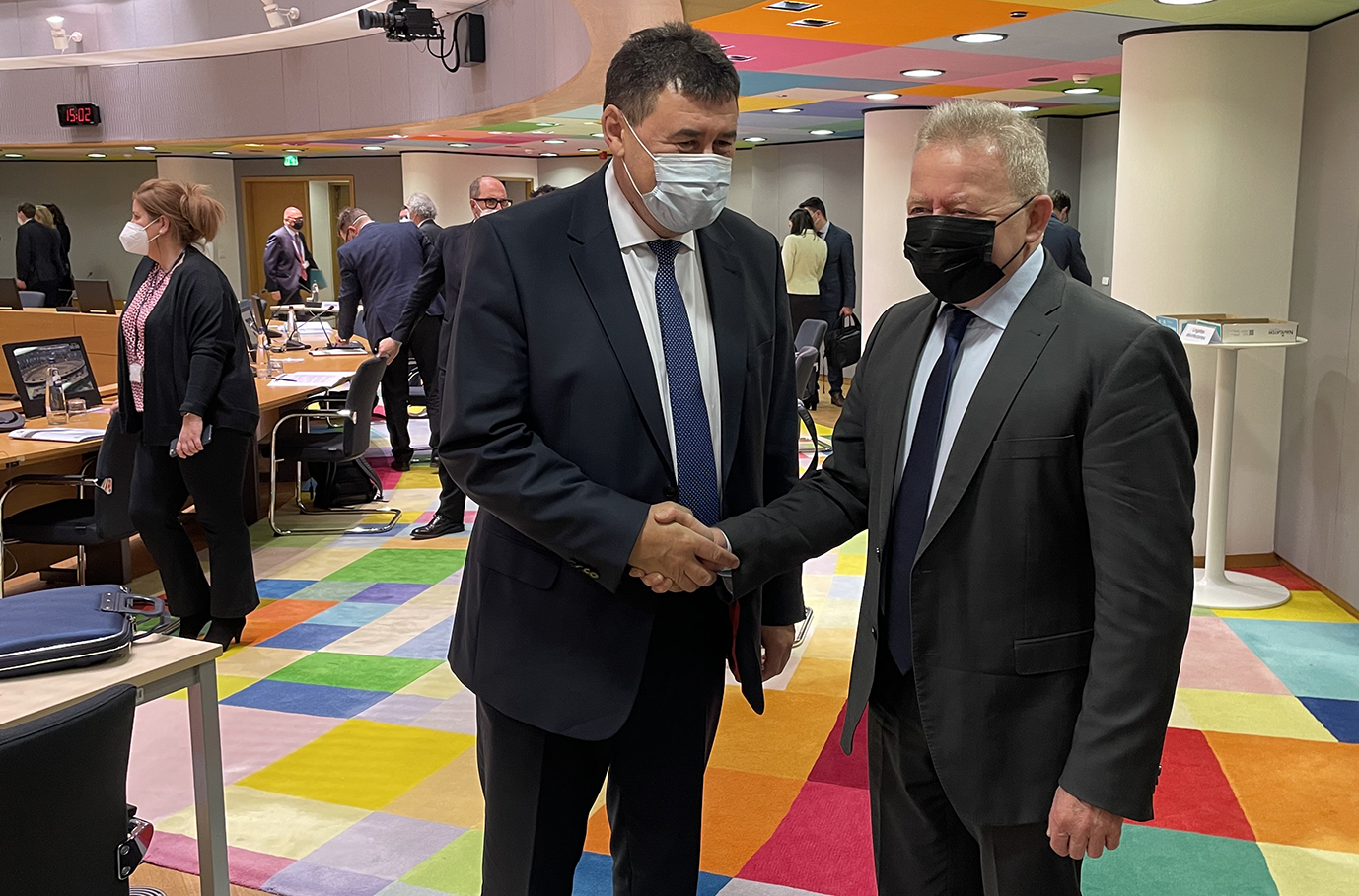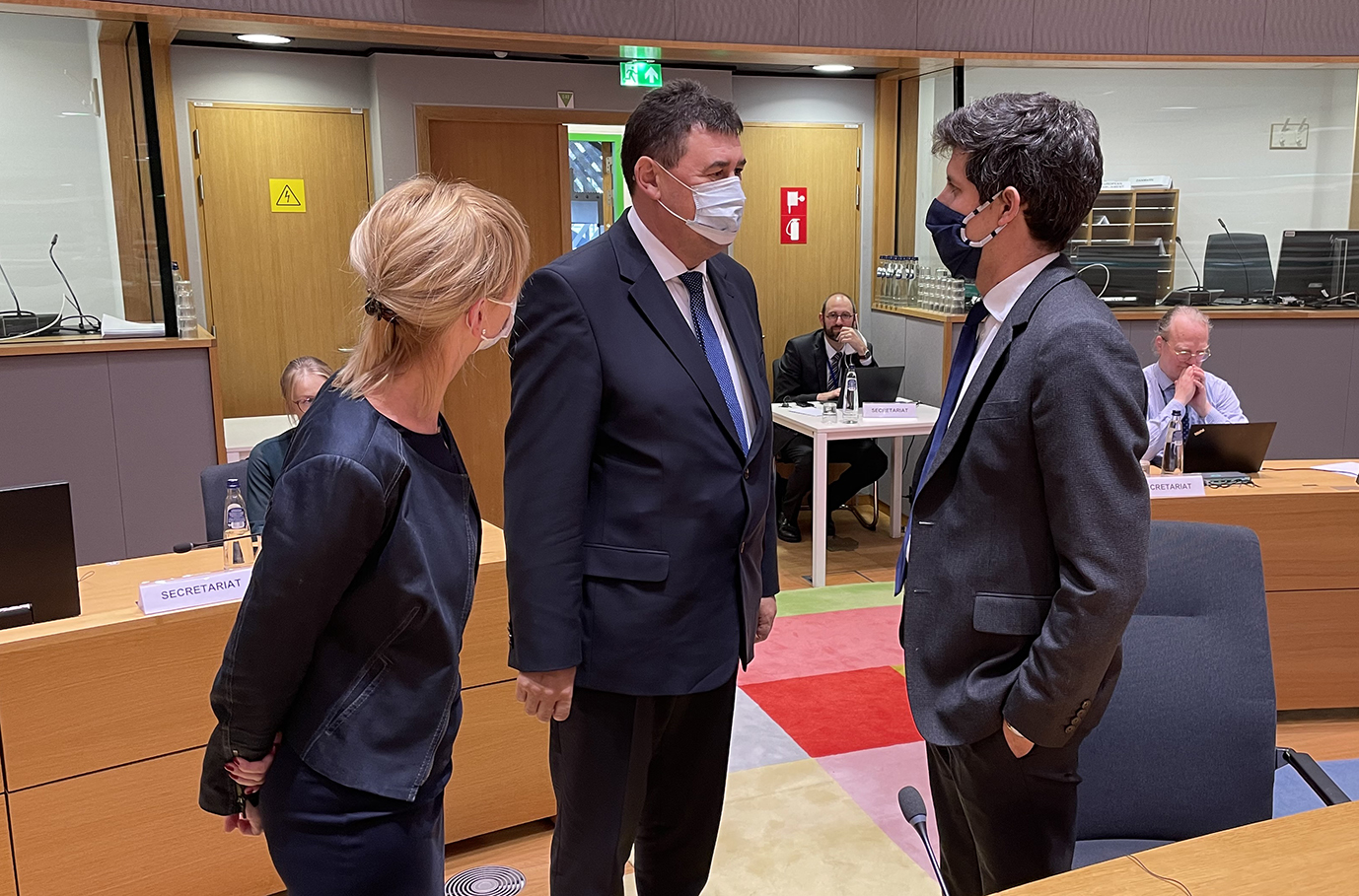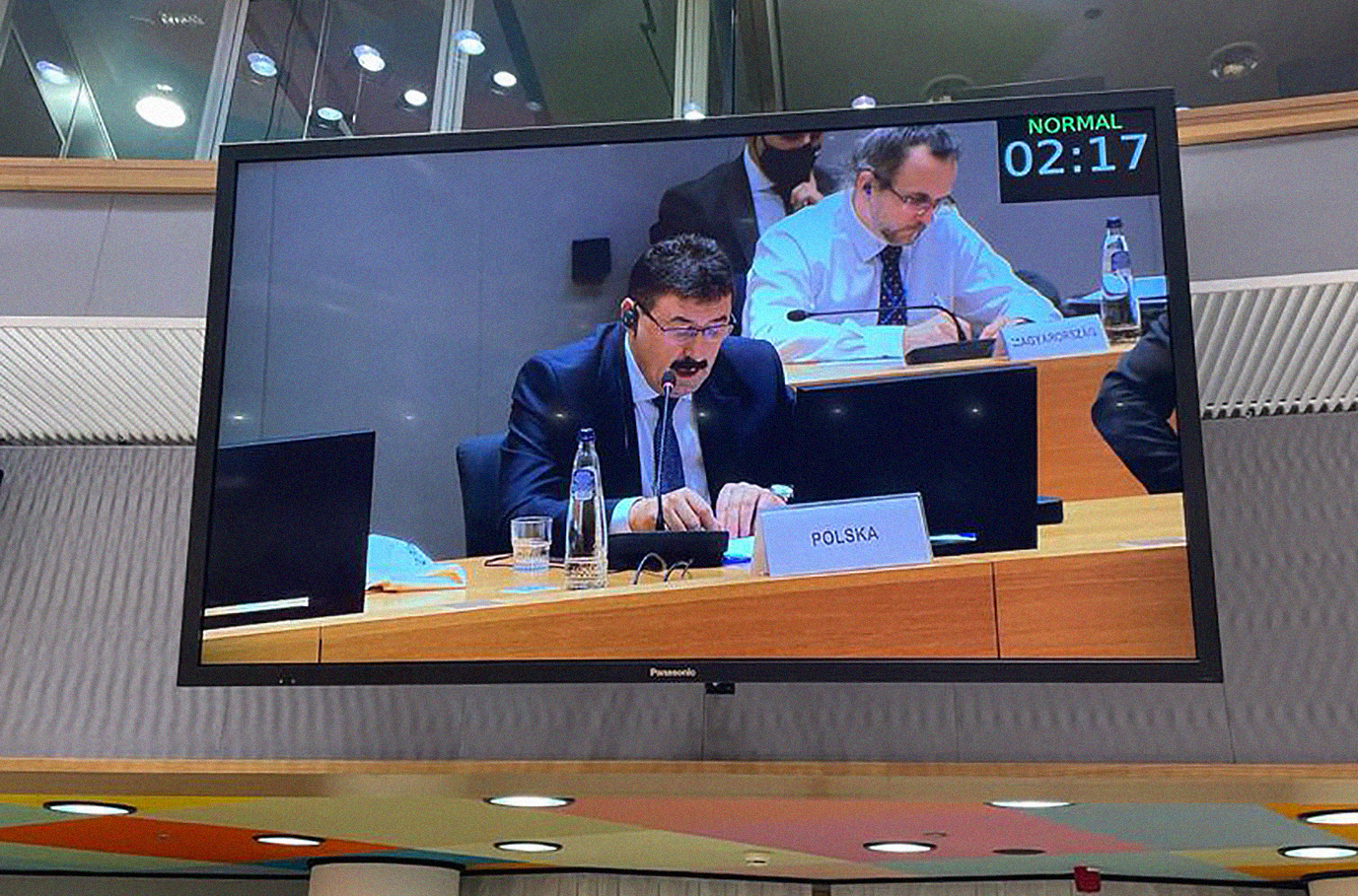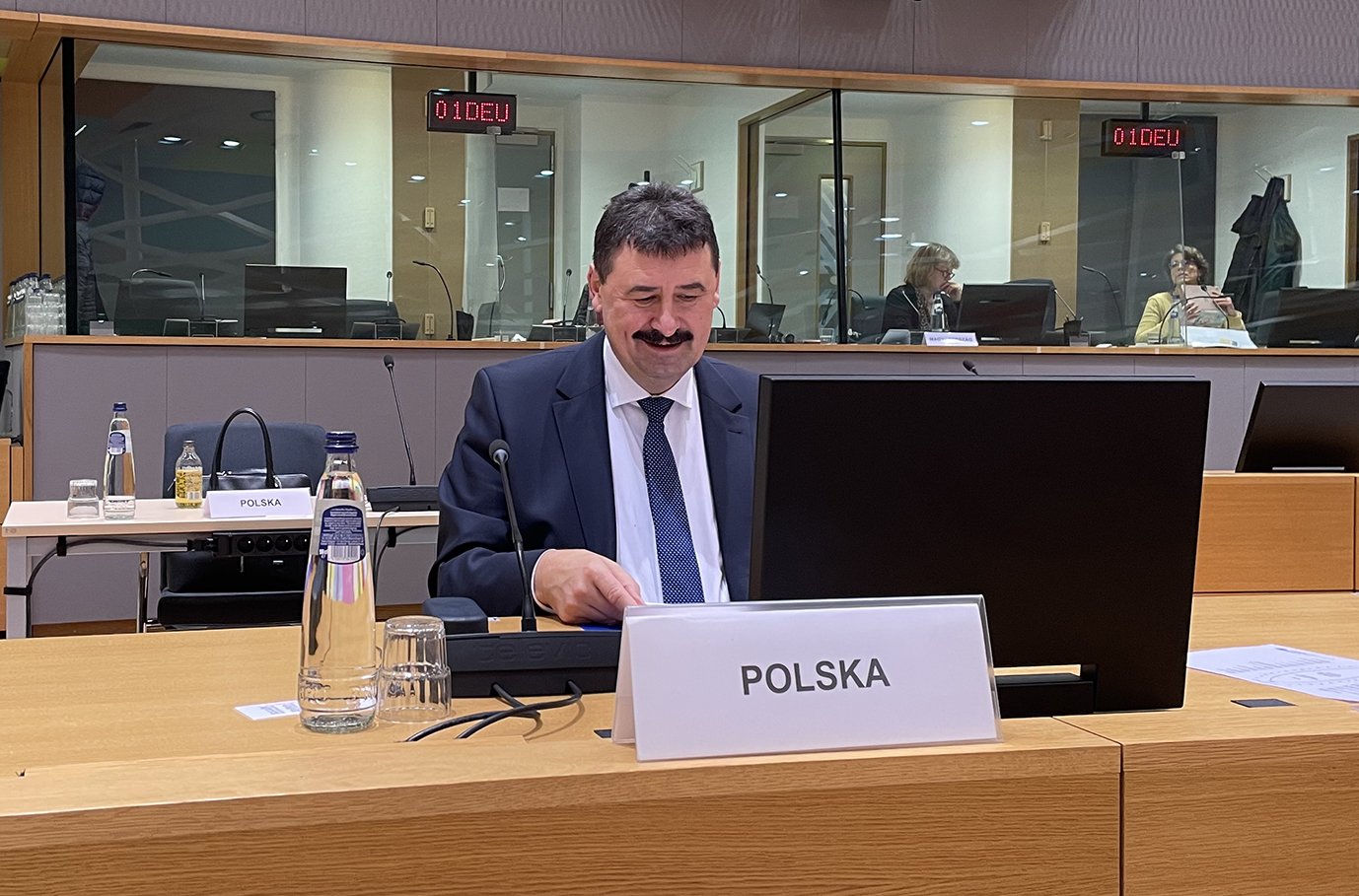First meeting of the EU Agriculture and Fisheries Council under the French Presidency
17.01.2022
The Secretary of State Ryszard Bartosik attended a meeting of the EU Agriculture and Fisheries Council in Luxembourg. It was the first meeting of agriculture and fisheries ministers under the French presidency.

Priorities of the Presidency
Ministers were informed of the French Presidency's priorities regarding European sovereignty, the fight against climate change and the promotion of sustainable development, which will be pursued, inter alia, in the agriculture, forestry and fisheries sectors. This includes preserving sovereignty in the area of food production. The Presidency recalled the central role of agriculture, which is to produce food and ensure food security. The two main political priorities of the Presidency are reciprocity in the area of environmental and health production standards for European products and those imported from third countries, and low-carbon agriculture and carbon sequestration in agricultural soils.
Trade issues in agriculture
Ministers discussed trade issues in the agricultural sector, based on information provided by the EC, which highlighted the role of external trade for EU agriculture. It pointed to the growing surplus of exports of agri-food products over their imports, which means that a growing part of farmers' income comes from international trade. The EC stressed the key role of free trade agreements in improving access to third country markets. Regarding import standards, the EC stressed that the need for imported products to meet EU health standards is non-negotiable. The EC recalled that it is preparing a report assessing the premises and legal feasibility of applying EU health and environmental standards (including animal welfare standards and production processes and methods) to imported agricultural and agri-food products.
In the discussion, Poland stressed the need to ensure full transparency of conducted trade negotiations with third countries and to observe the principle of reciprocity and balance in the exchange of tariff concessions.
“Concessions in access to the EU agricultural market should not be treated as a means to obtain concessions from trading partners in other sectors of the economy,” emphasised Deputy Minister Bartosik. In his opinion, in connection with the constantly increasing standards in the scope of animal welfare, climate protection, environment or employees' rights, which the EU producers are obliged to observe, the tariff preferences granted by the EU should be conditioned with the adjustment of partners to the same standards.
The Secretary of State Ryszard Bartosik also said that Poland was worried to learn that Ukraine had initiated protective proceedings concerning cheese imports. The matter is of great importance for both Polish and other EU exporters of dairy products.
Poland's motion regarding the Belarusian embargo
Poland has put forward a motion regarding the potential negative effects of the embargo imposed as of 1 January 2022 by Belarus on EU exports of agri-food products. It asked the EC to monitor the situation related to the embargo and to take measures to prevent losses for EU agricultural sector entities. Poland's request was widely supported by Member States, including Spain, Latvia, Belgium, Greece, Bulgaria, Romania, Ireland, Luxembourg, Croatia, the Czech Republic and Estonia. Referring to Poland's request, the EC said it would monitor the situation, particularly with regard to fresh fruit. It acknowledged that Poland may indeed be the most affected by the ban, in particular with regard to apples and pears. The EC stressed that for the time being the impact of the ban is not yet known. However, the situation will be monitored on an ongoing basis and based on the results of this monitoring the EC will consider possible actions.
Situation of the agricultural markets
In the section on the situation of agricultural markets, the Commission pointed out that, on the one hand, most agricultural sectors are in a good situation as regards producer prices in particular and, on the other hand, there are exceptions to this rule and risk factors that need to be monitored. The agricultural sector in 2021, despite problems due to adverse weather conditions, animal diseases and high production costs, has generally recovered from the pandemic. This point was combined with a briefing by the Czech Republic on the critical situation of the pork sector in the European Union. The Czech Republic called on the EC to introduce emergency support measures on the basis of Article 219 of the CMO Regulation. They highlighted the negative impact on the pork sector of factors such as ASF, COVID and rising production costs.
The Deputy Minister Bartosik presented the Polish position and said that the situation on the pig market was still difficult. Although in the last few weeks the fall in market prices has been halted, the current purchase price of pigs in Poland is almost the lowest on the European Union market. Farmers are incurring increasingly high production costs, including feed and energy costs. In areas where ASF is present, producers are facing difficulties in selling pigs and their lower prices.
"Therefore, we maintain our position that the European Commission should support pig producers," said the Polish minister.
In the discussion, ministers drew attention to risks and threats to agricultural markets. The most frequently mentioned problems included high production costs (including prices of energy, fertilisers and feed), which were pointed out by almost all member states. Some countries called for concrete action by the EC to reduce their impact on the agricultural sector. Many ministers referred to the difficult situation on the pigmeat market, calling on the EC to take action, including Poland, Slovenia, Cyprus, Malta, Latvia, Greece, Romania, Lithuania, Bulgaria, Austria, Belgium, Slovakia, Hungary. The most frequently mentioned specific action was the emergency market support measures under Article 219 of Regulation 1308/2013.
Communication on a sustainable carbon cycle
The Presidency emphasised that it regarded this topic as one of its main priorities and started work on the Council conclusions to the communication, which are planned to be adopted in March or April at the latest. The EC communication addresses in a supra-sectoral manner the problem of achieving climate neutrality in the EU by balancing emissions and removals of greenhouse gases.
In Poland's view, farmers who make efforts which result in carbon sequestration in soil, in energy carriers replacing fossil fuels or in biomass used for industrial purposes instead of non-renewable raw materials should be appropriately rewarded for these efforts. Achieving carbon farming targets requires ensuring that farmers have access to the necessary knowledge and advisory services. Secretary of State Ryszard Bartosik informed that some of the practices included in carbon farming have already been planned in the Polish Strategic Plan for the CAP, which has been sent to the EC.




